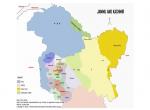On August 5th, 2019, Modi government nullified the article 370 and scrapped article 35 A, the backbone of article 370. It was indeed a historic moment for India as article 370, in essence, had become a dead weight providing a robust protective shield to corruption, terrorism, nepotism, jihadist radicalization, and poor governance. The temporary constitutional provision of article 370 providing special status had long outlived its utility and rationale. Over the last many decades, it was only providing “special obstruction” to Kashmir’s socio-economic development and integration with India.
A year has passed, and one naturally feels the impulse to review the decision and the developments in the last year. However, it is imperative to mention that it may be too early to make a comprehensive review of the impact of Delhi’s historic Kashmir move and make decisive conclusions. Nonetheless, the situation deserves a nuanced appraisal without rigid judgments, only to enhance our understanding of the current state of affairs and the long-term effects, to develop better future policy interventions.
First and foremost, it must be clearly understood that the decision to abrogate article 370 was much more than a fulfillment of an electoral promise. There were compelling and strategic and security concerns that precipitated the move. Kashmir had entered into a critical phase where transnational jihadist groups like Al Qaeda and ISIS were finding deep roots in Kashmir. Islamist organizations like Jamaat-i-Islami had become a de facto government, and Salafi radicalization, hawala dealings, and drug smuggling were at its zenith ruining the generations of youth. After the Arab spring, the young generation of Kashmir was majorly coming under the influence of Pan-Islamist and caliphate ideologies. India had two options- either allow Kashmir to be swept by the global jihadism or abrogate article 370, rejuvenate its political and economic framework, usher in an era of prosperity, peace, and stability and integrate it with mainstream India. India’s enlightened political leadership chose the latter even at the cost of temporary challenges and difficulties.
After Delhi’s decision, the internal situation was managed commendably. Though the state was put under communication and security lockdown, such a critical step ran the risk of massive public unrest and terrorist violence abetted by Pakistan. Hence, it was a compulsion to prefer life over liberty. As a result, there was hardly any violence and public outrage barring a few minor incidents. During the lockdown, the local administration was prompt in timely supplies of the essential items. On the festival of Eid following the abrogation, the local administration acted most efficiently in ensuring supplies and maintaining law and order. The way it managed the situation after the abrogation of article 370 can be an interesting case study for future administrators and management students.
In the international scenario, India’s deft diplomacy and sincerity of the cause resulted in most of the world powers, including most of the Arab countries supporting India’s move. Only Pakistan and Turkey launched a campaign against India in international forums, the reasons for which hardly need any elaboration. Both the terror-sponsoring nations failed in generating any opinion against India. Later their proxies made an issue out of security and communication lockdown; however, India, in line with its strong democratic credentials, facilitated a tour of European MPs in Kashmir, once again proving that India had nothing to hide.
The Security Situation
The abrogation of article 370 dealt a death knell to Jihadist terror infrastructure in Kashmir. The government arrested all the separatist leaders, mainstream politicians with dubious credentials and radical clerics, and banned Jamaat-i-Islami, in effect neutralizing the separatist and terrorist support system. As a result of which, there was hardly any violence and public protest. Pakistan was utterly shocked to see public silence over India’s move. The public silence also proved that the earlier protests were organized and orchestrated by the proxies of Pakistan, which were put behind bars by the government.
As a result, ISI masterminds were pressuring terrorist groups and United Jihad Council (UJC) to incite violence and public protests in Kashmir, in which they failed because of Delhi’s firm grip over the security situation. Besides, due to communication lockdown, the terrorist groups failed to execute several planned Pulwama-like suicide bombings and IED blasts. It did not take long for Pakistan to realize that it needed to change strategy and tactics in militancy. After that started massive infiltration of highly trained foreign terrorists, reportedly, some of them are even trained by the elite Special Services Group (SSG) commandos of Pakistan. Today, North Kashmir has become a hub of foreign terrorists (FTs). In particular, Sopore, Kupwara, Bandipur, and Hajin are affected. Traditional actors like Hizbul Mujahideen (HM) and Hurriyat conference were falling out of favor of the ISI masterminds because they could not organize spectacular terror attacks and public protests. Looking at statistics, the number of Kashmiri youth joining militancy has fallen by 40 percent after the revocation of article 370, and the terror-related incidents declined from 188 to 120. In total, 136 militants have been killed in the last seven months (January to July 30th, 2020), out of which 110 are locals, and the rest are FTs. Last year, the number of killed militants was 128. However, the statistics do not reveal the complete story. The temporary lull in the militant activities might have occurred due to the Corona pandemic, communication, and security lockdown and also as a part of the deliberate strategy. It is so because official sources confirm a massive rise in the infiltration bids.
The authors’ informed sources also confirmed that Pakistan has already begun transferring Al Badr terrorists and Afghan Taliban veterans to Kashmir. Recently, in the Afghanistan’s National Directorate of Security (NDS) raid at a Taliban training camp in Jalalabad, 10 cadres of Jaish died. Such a scenario raises immense possibilities of Talban fighters joining Jaish and Lashkar cadres in Kashmir. The FTs entrenched in Kashmir are possibly waiting for the right moment and directions from Pakistan to strike. Hence, there is no reason to be complacent. Though Home Ministry banned Jamaate Islami (JI), there were serious deficiencies in the implementation of that ban in an earnest manner. In effect, the legal action could hardly venture beyond seizure of their offices, bank accounts and a few arrests of their popular leaders. However, the entire second and third rung leadership dispersed into rural areas where they laid silent and facilitated the movement and logistics for the foreign terrorists.
Besides, Al Qaeda in Indian Subcontinent (AQIS) has also become actively involved in Kashmir. Its recent video and audio messages, AQ urged Kashmiris to unite in their Jihad against India. ISIS also declared Kashmir as its province.
The modus operandi of militancy is undergoing sweeping changes in Kashmir. Interestingly, there are new actors like Turkey, increasingly involved in Kashmir affairs. In the future, there is a strong likelihood of Turkey’s involvement in training and supporting jihadist groups in Kashmir in the same way as it is doing in Libya and Syria. Official reports also suggested that the terrorist groups may use drones in attacking civil and military installations in the future. Further, the Shia community in Kashmir, hitherto seen as pro-India is also undergoing massive radicalization and harbouring anti-national sentiments. Reportedly, Pakistan is making serious efforts to radicalize Shias and induce them to join militancy. The recent souring of relations between India and Iran and growing bonhomie between Iran and China needs to be seen and understood in this context. Besides, Turkey is making extensive outreach efforts in Kashmir to capture the hearts and minds of the youth with its Islamist narrative. In the future, the militancy is likely to scale up with the heavy involvement of FTs and other foreign state and non-state actors. West Asian tactics like suicide bombings and IED attacks are likely to be common, and terrorists will be attacking newly emerging mainstream politicians and civilian non-Kashmiris. These are some of the critical security challenges that Delhi will have to encounter in Kashmir.
Governance and Outreach
On the governance front, it needs to be said that amidst all the lockdown, if there was anything that held the hopes high for the Kashmiris was the assurance of economic development and better job opportunities post article 370. In a politically surcharged atmosphere, the first Lieutinant Governor (LG) was sent with the sole objective of providing corruption-free and efficient governance and administration, and create employment opportunities. To that end, in the first budget of the UT (2020-21), all supplementary demands for the grants were cleared, and the budgetary allocation crossed 1 lakh crore for the first time.
The panchayats are being strengthened through massive grants. One quoted figure stands at Rs. 366 crores to 4483 panchayats. 10 percent of the annual budgets in all departments has been reserved for tribal welfare. Central schemes like PM Awas Yojna, Kisan credit card scheme and Ayushmanbharat are moving at a rapid pace. The state administration promised to create 50,000 new jobs. In the March 2020 meeting chaired by Cabinet Secretary Mr. Gauba and attended by various other ministries, it was decided to ensure 100 percent coverage of all the potential beneficiaries under all schemes, to make perceptible changes on the ground. However, despite all the earnest measures, the implementation remains in a bad shape. For example, according to data provided by the National Scholarship Portal, Jammu and Kashmir has received 517,000 new proposals for pre-metric scholarship in the academic year 2019-20 but money has been disbursed in just 8,294 cases. Similarly, as on February 26, against a total target of building 62,932 houses for the rural poor in the region, only 36,780 have been sanctioned and just 122 have been completed, according to the data available with the rural development ministry.
Because of the conflict, the governance and administration have always been in bad shape in Kashmir. The implementation of the development schemes has been pathetic and continues to be so. Among the people, there is a growing perception that the Jammu and Kashmir, has been left to the whims and fancies of bureaucrats. For long, the intelligence agencies and the security forces have been dominant players in the state. However, after the abrogation of article 370, Delhi has to understand that lack of accessibility, bureaucratic apathy and arrogance are not the best ways to integrate Kashmir. Conflict areas need special treatment and a massive outreach effort. In the popular imagination, the issue is not all about economic development, as a significant majority feels that the decision is also a threat to Kashmiri identity. Hence, mere official announcements of government schemes leave a colossal communication and emotional gap which anti-national and pro-Pakistani jihadist forces utilize in the best manner.
They generate rumours of Kashmir being flooded with outsiders, mining contracts being awarded to outsiders and colonization of the state with army personnel. Such rumor mills are firing on all cylinders after the abrogation of article 370. The state administration must reach out to the people in an individual, official and collective capacity. In a paper, jointly written with Mr. CD Sahay, former R&AW chief, for VIF, the author discussed at length the outreach strategy, methods to provide counter-narrative to jihadism and good governance measures in Kashmir.
The abolition of the statehood dealt a severe blow to the mainstream politics in Kashmir. The mainstream political process in Kashmir, for years, was India’s robust shield against separatism, terrorism, and Jihadism. Dr. Faurkh Abduallah’s election as a Chief Minsiter in 1996 gave a moral victory to India over Pak-sponsored terrorism. However, the mainstream political process, over time, fell victim to separatist and jihadist narrative and, in many ways, ended up becoming a part of the ecosystem that nurtured religious extremism and separatism. However, if Delhi intends to provide a healing touch to Kashmir and double down on the process of integration and economic development in Kashmir, mainstream politics has to be revived. Empowering panchayats is a great initiative, but the importance of mainstream politics cannot be denied or discounted. Serious efforts should begin to empower and nurture nationalist mainstream politics. The old intelligence games of appeasing to extremist and anti-national forces for minor tactical gains must end now. Delhi should talk in black and white i.e., warm embrace for nationalist elements with guarantees of economic development and peace, and harsh action against anti-national and extremist forces.
Further, a year of detention, lockdown, and corona pandemic has shattered the tourism industry, the economic lifeline of Jammu and Kashmir. Twenty percent of the population is dependent on tourism. The number of tourists declined by eight times. The shikara business people are compelled to sell vegetables. There is a strong need to revive business and industry in the state.
And, Kashmiris should also understand that it is the religious extremism, terrorism and drugs pumped in by Pakistan have destroyed their identity and cultural roots. The abrogation of article 370 was long overdue to break that deadlock. They should not fall victim to false rumours of demographic change in Kashmir, adopt a positive outlook, and invest their energies and effort in constructive economic development and peace.
The mainstream politicians of Kashmir need to understand that article 370 is dead, Kashmir’s future lies with India, and finally, any attempt by Pakistan and its proxies in Kashmir to sabotage the peace stability will be met with disproportionate retaliation. It is their call to listen to their conscience and find peace in democratic, powerful, multicultural and tolerant India instead of pandering to crude instincts of primitive and barbaric ideologies of jihadism and Maududi’s Islamism.
Coming to Ladakh, it deserves mention in the beginning that Ladakh welcomed the decision to abrogate article 370. It ended years of discrimination and partial treatment by valley-centric political leadership controlled by Islamist forces because of their non-Muslim identity. Ladakh is already on the way to development. Recently, it got its central university.
To sum up, security challenges will be severe in the future. The measure did not go down well with Pakistan and expansionist China. They are likely to intensify militancy and public unrest. Hence, Delhi has to be firm, decisive, and determined against terrorism. Not only the Kashmir-based Islamist organizations and terrorist groups need to be eliminated, but firm action is also required against terror training camps in PoK and key terror masterminds in Pakistan and Afghanistan.
(The paper is the author’s individual scholastic articulation. The author certifies that the article/paper is original in content, unpublished and it has not been submitted for publication/web upload elsewhere, and that the facts and figures quoted are duly referenced, as needed, and are believed to be correct). (The paper does not necessarily represent the organisational stance... More >>
Image Source: https://www.organiser.org/Encyc/2020/3/5/2_12_03_17_7_1_H@@IGHT_350_W@@IDTH_650.jpg











Post new comment